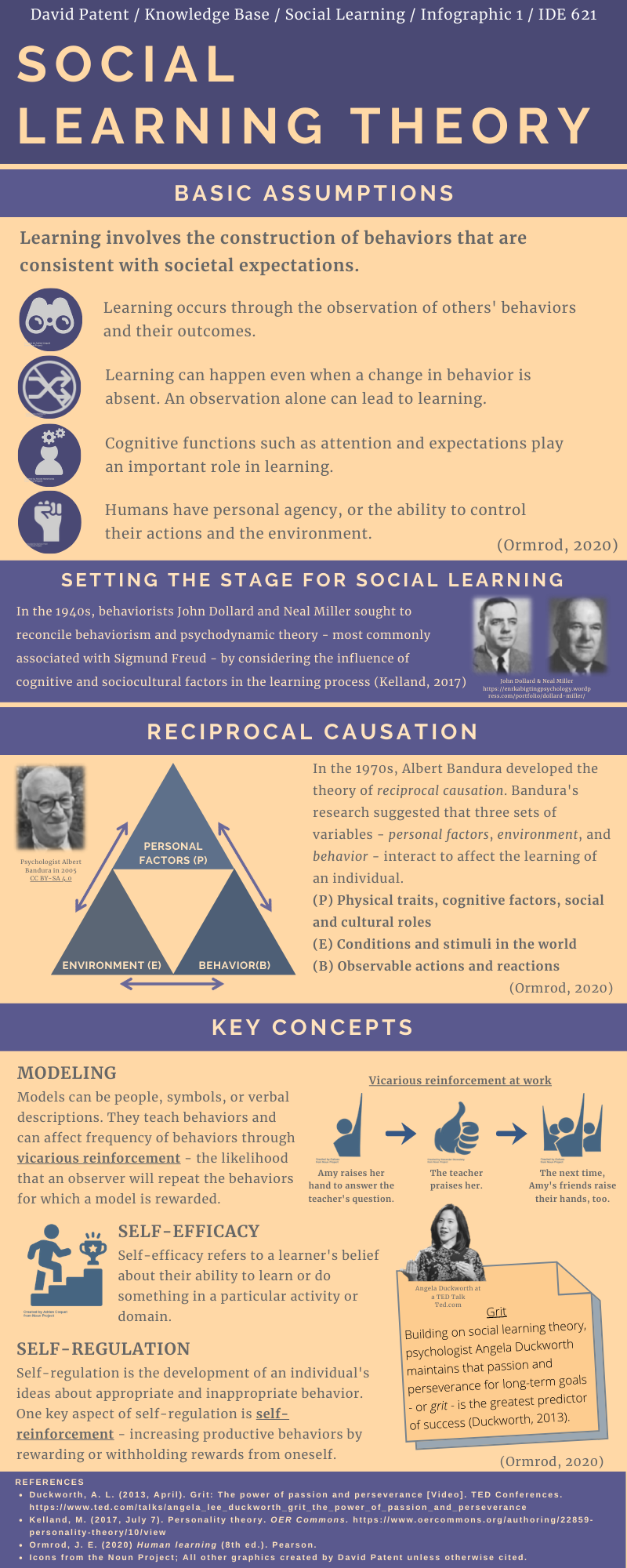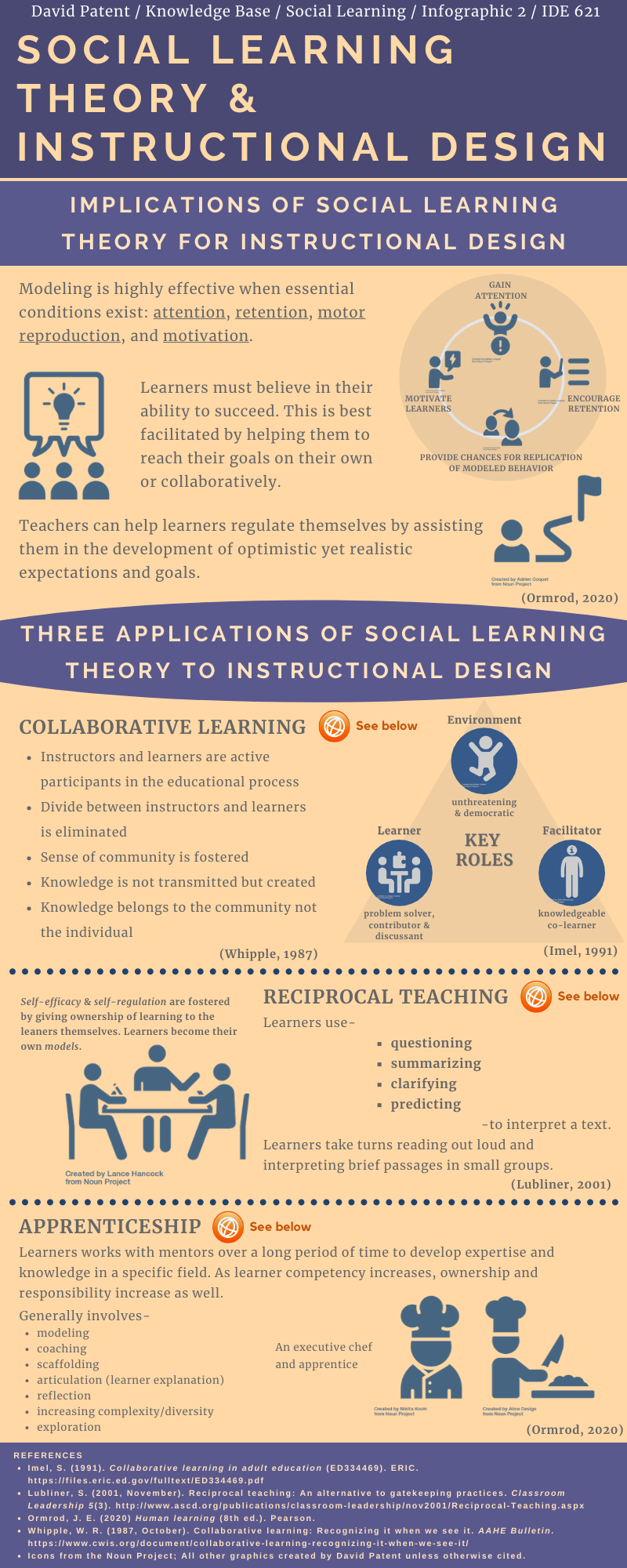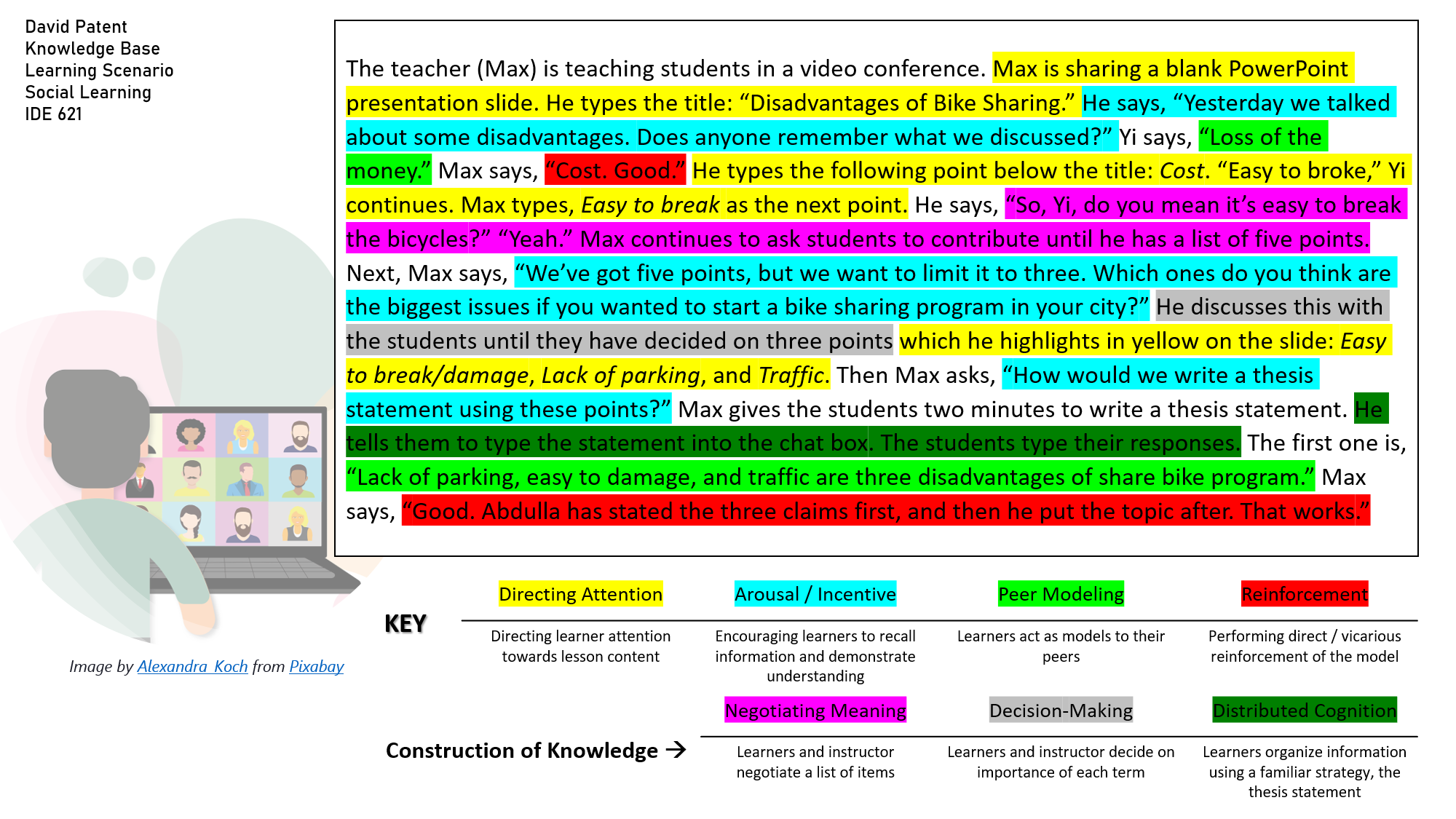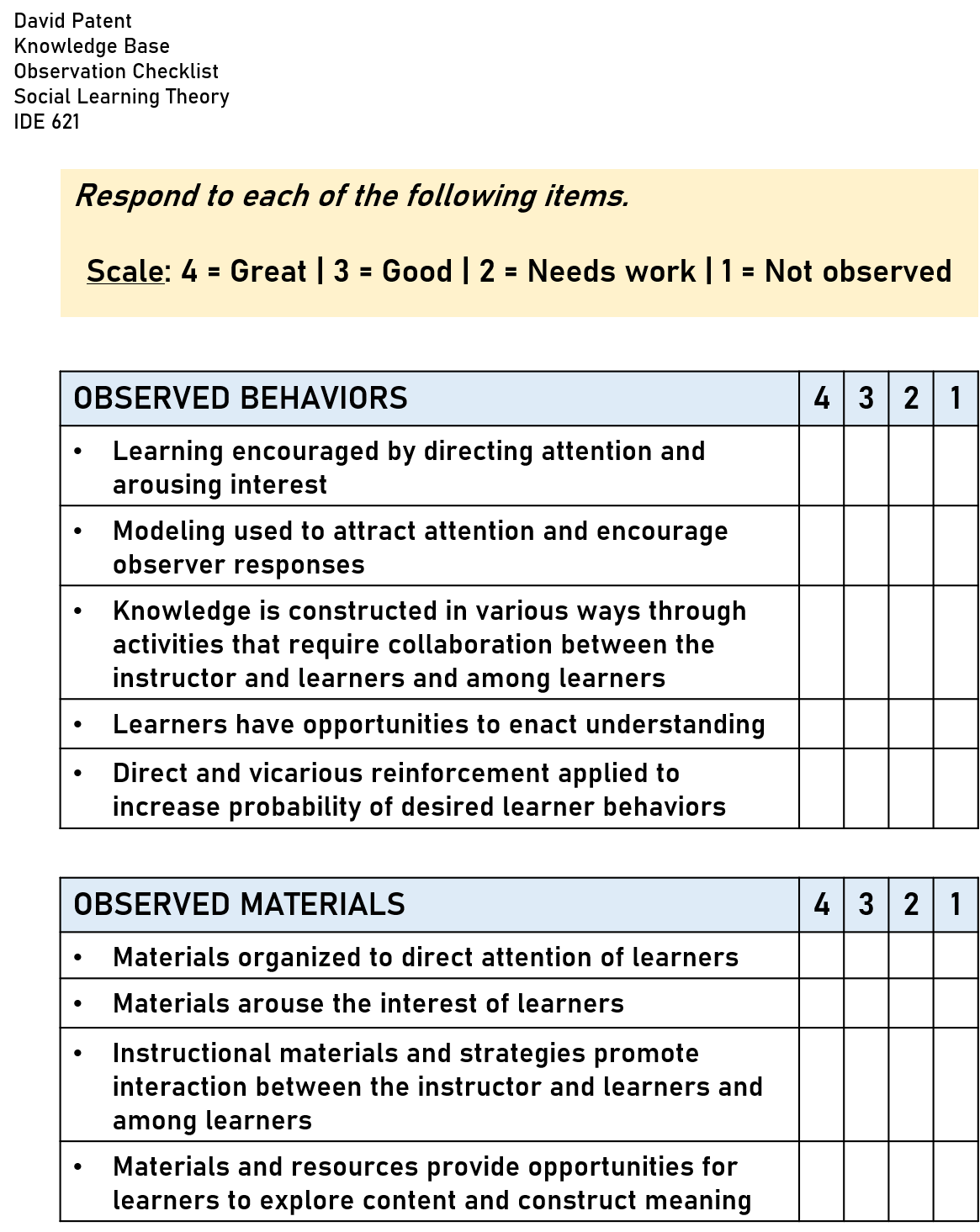David Patent – IDE 621 – Principles of Instruction and Learning – Fall 2020
Infographic 1: Learning Theory

Infographic 2: Instructional Design


- Collaborative Learning – In this video from iBiology, collaborative learning strategies are employed to teach students in an undergraduate biology course.
- Reciprocal Teaching – In this video, Carol Sole demonstrates the use of reciprocal teaching in a 3rd grade reading class.
- Apprenticeship – In this video, employees and an apprentice discuss their experience of an apprenticeship program for juniors and seniors in high school at a large automotive company.
Learning Scenario

Observation Checklist

Reflection
Knowledge emerges only through invention and re-invention, through the restless, impatient, continuing, hopeful human inquiry human beings pursue in the world, with the world, and with each other.
Friere, 1996, p. 53.
In Pedagogy of the Oppressed, Paulo Freire posits a dichotomy between the ‘banking’ concept of education and a ‘problem-posing’ model of education. In the former knowledge is received by the learner and transmitted by the teacher, while in the latter the distinction between learner and teacher is dissolved as both become agents in the construction of knowledge. Freire’s approach to education is at the core of my own teaching philosophy.
The points of contact with social learning theory and ‘problem-posing’ education are, perhaps, obvious. In social learning theory, learning is essentially social, a construction of meaning through observations and interactions that can be accepted by society. I would argue that ‘society’ may refer to large groups at the macro level – as in a nation, organizations, disciplines, and any other organized system where people share common practices. Social learning theory has tremendous power as an explanatory theory in great part because it is inclusive, drawing together individual cognitive factors, environmental conditions, and behavioral phenomena.
Ironically, the strength of social learning theory seems to be its challenge. Social learning is highly dependent on context, varying from individual to individual, classroom to classroom, and culture to culture. Behaviorism and cognitive theory seem to permit the development of neater and perhaps more easily applied explanatory theories, such as operant conditioning and information processing. There is a messiness to social learning theory that leaves the teacher somewhat uncertain at times of her role. However, I have found the experimentation permitted by instructional theories like collaborative learning and reciprocal teaching, both of which I have used in my teaching, to be more rewarding for learners and myself than any other type of instruction.
Reference
Freire, P. (1996). Pedagogy of the oppressed (M. B. Ramos, Trans.). Penguin Books. (Original work published 1970).

